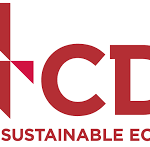In an era of rising concerns about climate change, T. Rowe Price reported today that environmental, social and governance (ESG) disclosure issues became the number one topic in its voluminous engagements with the managements of companies around the world in 2019. Looking to the future, the $1.01 trillion global asset manager said that the rising risks associated with climate change will impact virtually its entire universe of portfolio holdings to varying degrees. Therefore, climate change alongside other ESG factors is being increasingly factored into analysts’ evaluation of company fundamentals.
According to the firm’s second annual ESG Report, ESG is being ingrained into its investment processes, impacting how it interacts with thousands of company managements in its portfolios and how it casts its proxy votes, and influencing its advocacy efforts to protect shareholder rights.
The report also presaged the profound changes in corporate governance that might arise in the aftermath of the COVID-19 pandemic.
“It is too early to draw conclusions about the long-term effect this virus will have on companies and economies, but what is clear at this stage is that the culture and values of corporate issuers around the world are being tested like never before,” Donna Anderson, Head of Corporate Governance, said in the report.
“Companies’ previous statements about their management of human capital, health and safety, community involvement, and the overall importance of stakeholders to their businesses will be assessed in a whole new context. We predict that these topics will become central to the engagement that takes place between investors and corporations.”
The firm’s fundamental investment process is supported by a proprietary Responsible Investing Indicator Model (RIIM) that proactively assesses responsible investing profiles of more than 14,000 corporate and sovereign entities, globally. The RIIM analysis spans more than 20 indicators,2 such as supply chain (environment), employee treatment, and business ethics to evaluate companies’ ESG risks and positive characteristics. In addition, applying RIIM portfolio analysis can help quantify the amount of risk pertaining to ESG issues across a portfolio manager’s whole portfolio and compared to the benchmark.
One example of ESG integration in action is the assessment of AIA Group, a pan-Asian insurance provider. Analyst Zenon Voyiatzis notes that investors continue to underestimate the durability and resilience of the growth achieved by AIA Group. However, the Responsible Investing team’s analysis confirmed AIA’s robust environmental management program with a particular emphasis on climate change factors. The company incorporates ESG factors such as water scarcity, climate change, environmental regulations, and labor issues, across all asset classes in which it invests, thereby reducing exposure to potential downside risks. This input provided further support for our overall investment analysis3.
Alongside RIIM and its fundamental research platform, T. Rowe Price implements its investment-driven engagement program to ascertain how its investee companies are building environmental sustainability into their long-term strategic planning, and to guide them towards industry best practice. This includes the firm’s advocacy for aligning ESG disclosure with global frameworks that emphasize financial materiality, namely the Sustainability Accounting Standards Board (SASB) and Task Force on Climate-Related Financial Disclosure (TCFD).
Maria Elena Drew, Director of Research, Responsible Investing said, “Our clients are increasingly concerned with understanding environmental-related risks within their portfolios. For us, environmental data is a key component within our responsible investing indicator model, which integrates into our broader investment process. As part of our commitment, we’ve been active in using our scale and influence to drive positive change. In fact, ESG disclosure was our #1 engagement topic of 2019, with environmental disclosure a feature of 38% of our ESG engagements.
“Our engagement activities have sought to nurture steady improvements in ESG disclosure by helping companies understand how we use ESG data in their investment analysis and decision making, how our clients process ESG data to evaluate their aggregated portfolios, and how they should report environmental data –as there is no uniformly adopted standard.”
T. Rowe Price uses its proxy voting power in a way that complements the other aspects of the firm’s relationship with investee companies, including engagement, investment diligence, and investment decision making. T. Rowe Price believes the scale and scope of its business puts it in a powerful position compared with many of its peers when carrying out ESG engagements with companies.
While the firm consistently supports effective, well-targeted proposals that reflect its concerns as an investor, we believe it is debatable whether many shareholder resolutions represent a meaningful solution to various ESG-related challenges. In almost every instance, shareholder proposals are non-binding votes that are opposed by the company’s management and board. Based on the firm’s experience, one-on-one engagement with companies produces better outcomes than shareholder resolutions. It’s also important to note that out of 64,249 proposals that T. Rowe Price cast a vote on globally in 2019, only 0.5% were dedicated to environmental and social issues.
In 2019, T. Rowe Price continued to evolve its stewardship program:
- The number of meetings with management exceeded 11,000 (with 656 classified as ESG engagements);
- Cast proxy votes on 64,249 proposals at 6,350 meetings globally – representing 99.2% of all meetings held.



